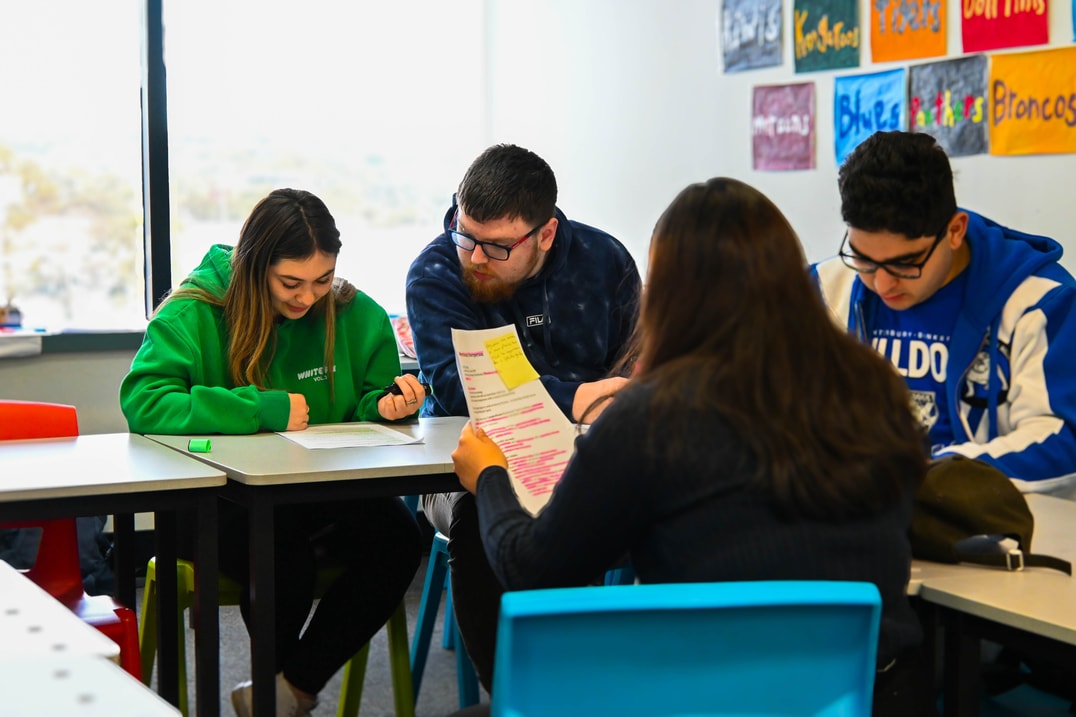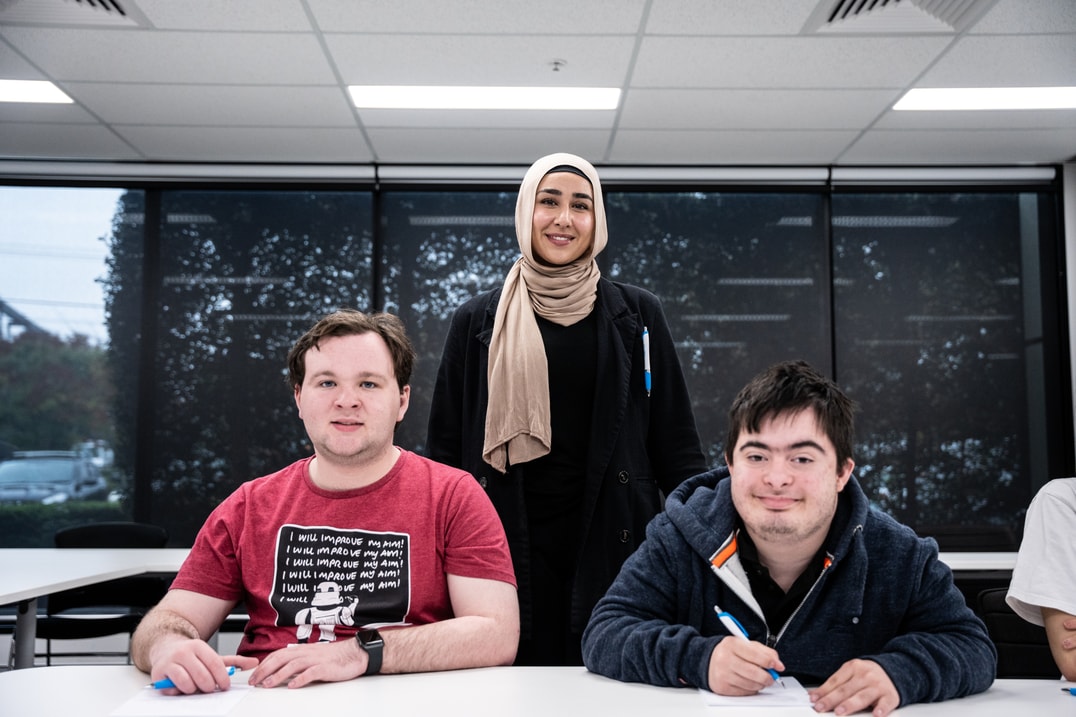School Leaver Employment Supports (SLES) is an NDIS funded service designed to help young people with disabilities make a confident and successful transition from school to work. More than just a program, SLES offers hands on support, skill development, and real world experience to prepare school leavers for long term employment success.
Gaining work experience early is critical. It builds confidence, improves communication, and helps develop practical skills that can’t always be learned in a classroom. But more importantly, it opens doors—giving young people the chance to explore different roles, understand workplace expectations, and discover what kind of job truly suits them.
SLES focuses on creating individualised, meaningful employment pathways that go beyond one size fits all solutions. By tailoring support to each person's strengths, interests, and goals, SLES helps school leavers not just find a job, but build a career—and a future—they can be proud of.
What Is SLES?
School Leaver Employment Supports (SLES) is an NDIS funded program designed to help young people with disabilities transition smoothly from school into employment or further training. It offers practical, personalised support during this important life stage—bridging the gap between finishing school and entering the workforce.
SLES is available to eligible school leavers aged 16 to 22 who are looking to build the skills, confidence, and experience needed to thrive in a work or training environment. Rather than a one size fits all approach, SLES focuses on tailored learning and real world preparation, helping participants explore their strengths and career interests.
Through a combination of training, mentoring, and hands on opportunities, SLES supports young people in areas like communication, time management, resume building, interview practice, and workplace behaviour. It also includes employment assistance, such as job searching, applications, and support with work placements—ensuring each participant is job ready and supported every step of the way.
Whether the goal is to find a job, enrol in a course, or build work experience, SLES creates a foundation for long term success and independence.
Why Work Experience Is So Valuable
For young people with disabilities, work experience is more than just time spent on the job—it’s a powerful stepping stone toward greater confidence, independence, and future success.
Getting involved in real world work environments helps participants build essential life and job skills that go beyond textbooks. Skills like clear communication, teamwork, problem solving, and being on time become part of their everyday routine—making the transition into paid employment smoother and less overwhelming.
Work experience also offers a valuable opportunity for self discovery. It allows young people to explore different roles, industries, and tasks, helping them uncover their personal strengths, interests, and career preferences. This insight plays a vital role in shaping a meaningful employment pathway.
Most importantly, hands on experience boosts employability. It gives school leavers something real to include on their resume, helps them stand out to potential employers, and provides references that can support future job applications. It’s not just about getting a job—it’s about building a foundation for long term success and independence.
If you're looking to join the SLES program, contact Scope Australia now. Our friendly team is ready to support you with personalised guidance and employment focused services to help you succeed.
How SLES Creates Real World Experience
SLES helps young people with disabilities gain practical work experience through tailored, goal based support. Each participant receives an individualised plan that aligns with their strengths and interests.
Hands on opportunities include:
Internships and supported job placements
Volunteering and short term work trials
Industry visits and workplace tours
With help from mentors and job coaches, participants build job skills, confidence, and workplace readiness. SLES also focuses on finding and keeping a job, offering support with resumes, interviews, and ongoing job maintenance.
Key Skills Participants Learn Through SLES
SLES is designed to help young people with disabilities build the skills they need not just to find a job—but to succeed and grow in the workplace. Through individualised support and real world experiences, participants develop a wide range of practical and personal skills, including:
Workplace Etiquette & Expectations
Participants learn how to conduct themselves professionally in different work environments. This includes understanding dress codes, punctuality, teamwork, communication, and how to follow instructions or ask for help when needed.
Resume Building & Interview Skills
SLES helps participants create clear, job ready resumes and practice real interview scenarios. With support from mentors or job coaches, they learn how to speak confidently about their skills and experience to impress potential employers.
Travel Training & Time Management
Developing independence is key. SLES supports young people in learning how to use public transport safely and plan their travel routes. They also build skills in time management—such as sticking to schedules, meeting deadlines, and balancing tasks.
Problem Solving & Adaptability
Workplaces can be unpredictable, so learning how to handle change and solve problems is essential. Participants practice staying calm under pressure, thinking through challenges, and adapting to new roles or routines.
Ongoing Employment Assistance
Support doesn’t stop after getting the job. SLES includes long term help with maintaining employment—such as resolving issues at work, improving performance, or even transitioning to a new role if needed.
How to Get Started with SLES
If you’re a young person with disabilities looking to build your path to employment, School Leaver Employment Supports (SLES) can be a great starting point. Here’s how to get started:
Eligibility Requirements
SLES is available to eligible NDIS participants aged 16 to 22 who are leaving school and need extra support to prepare for work or further training. You must have an active NDIS plan and be assessed as suitable for employment related support.
Including SLES in Your NDIS Plan
To access SLES, you’ll need to discuss your goals with your NDIS planner or Local Area Coordinator (LAC). Make sure to clearly express your interest in gaining work experience, building skills, and preparing for employment. SLES will be included under your Core or Capacity Building Supports.
Tips for Families and Carers
Families and carers play a key role in supporting a successful transition. Talk openly with your young person about their goals and interests, and help them explore different providers. Choose a provider that offers individualised support, real world experience, and clear progress tracking.
What Happens After SLES?
Once SLES ends, support doesn’t stop. The NDIS category "Finding and Keeping a Job" can provide continued help such as job coaching, workplace support, and upskilling—to ensure participants maintain employment and grow in their careers.
Finding and Keeping a Job is a Capacity Building support category under the NDIS, designed to help people with disabilities prepare for, find, and maintain employment. It provides personalised support for participants who want to enter the workforce, whether for the first time or after completing school or another employment program like SLES.
Conclusion
SLES helps young people with disabilities take their first steps toward employment with real world experience, personalised support, and practical skill building. It’s not just about finding a job—it’s about building confidence, independence, and a pathway to long term success.
With the right support and guidance, SLES becomes a launchpad for a brighter future, helping school leavers grow into capable, work ready individuals ready to thrive.
If you’re ready to start your journey with SLES, contact Scope Australia today. Our experienced team can guide you through the process and help you build a personalised path to employment success.

